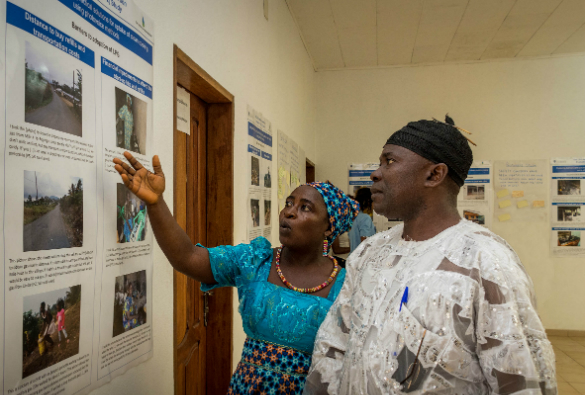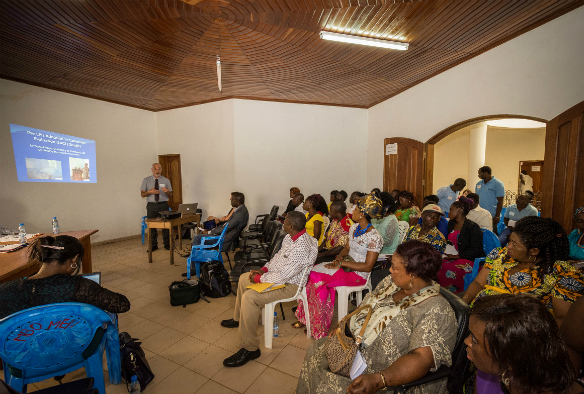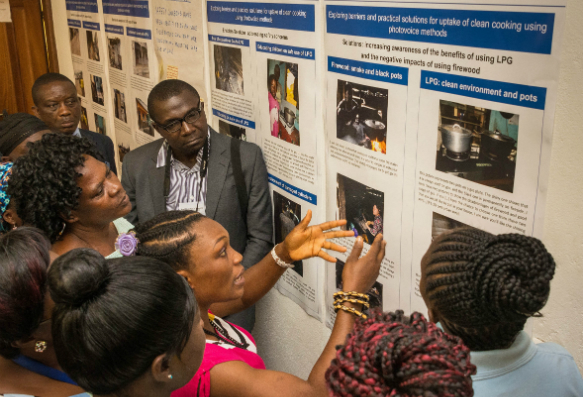Household air pollution research showcased in Africa
Published on

Researchers from the University have showcased their latest research on household air pollution at a public engagement event in Cameroon.
Four million people worldwide die each year from household air pollution resulting from solid fuel use. The majority of people in Cameroon currently rely on solid fuel for cooking, which is a major risk factor for respiratory disease in women and children and negatively impacts on the environment.
To address these problems, the Cameroon government has been looking at ways to substantially expand adoption of liquefied petroleum gas (LPG) - or bottled gas, a widely accessible and clean fuel in many African countries. The government has been working with the Global LPG Partnership (GLPGP) and the University’s Department of Public Health and Policy as part of a masterplan to increase adoption of LPG from 12% to 58% by 2030.
Led by Dr Daniel Pope, the LPG Adoption in Cameroon Evaluation (LACE) studies have identified barriers and enablers to adoption and sustained use of LPG from a community perspective, measured impacts on pollution and health of switching to clean fuel and tested interventions to help communities make the transition away from solid fuels.
[caption id="attachment_71854" align="alignleft" width="584"] Dr Daniel Pope presenting research at the event[/caption]
Dr Daniel Pope presenting research at the event[/caption]
On 26 September the Liverpool team, together with GLPGP, showcased their research and some of their key findings at a Public and Stakeholder Engagement Event at the Museum of Handicrafts in Limbe, Cameroon.
At the event, members of communities from Limbe and Buea in Cameroon took part in a photographic exhibition from a LACE research project led by Dr Sara Ronzi called 'PhotoVoice'. Through the use of photography and discussions, participants reported their personal views on barriers and solutions to encourage adoption and sustained use of bottled gas in their communities.
Dr Pope said “The event was a great opportunity for two-way engagement between communities and stakeholders to facilitate households to adopt LPG at scale in order to positively benefit health and climate. Interactive discussions with the participants and research leads will help translate our LACE research findings into policy recommendations for the Cameroon government.”
The event was funded through the University of Liverpool Public Engagement Awards Scheme. Attendees included the regional and local community chiefs and mayors, representatives from the ministries of Energy, Environment and Development and Health and LPG marketers, distributors and retailers. The event was also covered by national media.
The Liverpool LACE team includes Dr Daniel Pope, Dr James Higgerson, Ms Lirije Hyseni, Dr Elisa Puzzolo, Dr Sara Ronzi and Professor Nigel Bruce.
Learn more about the Department of Public Health and Policy’s, Energy, Air Pollution and Health Research Theme.
[caption id="attachment_71855" align="alignleft" width="583"] PhotoVoice project photographic exhibition[/caption]
PhotoVoice project photographic exhibition[/caption]